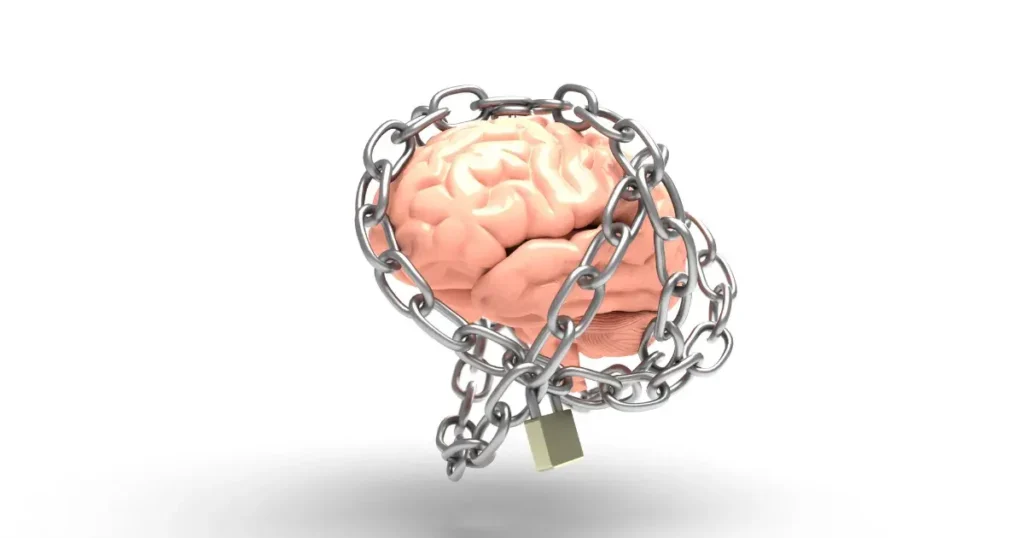In my personal entrepreneurial journey toward success, I’ve encountered numerous setbacks and failures that have tested both my resolve and resilience. Like many others, I’ve often found myself navigating through the murky waters of uncertainty, grappling with self-doubt and frustration along the way.
Yet, in reflecting on the stories of iconic figures such as Oprah Winfrey, Walt Disney, and Stephen King, I’m reminded of the profound impact that setbacks can have on shaping our narratives. Their experiences underscore a fundamental truth: success is not devoid of setbacks but rather a product of perseverance and the right mindset.
Delving deeper into the psychology of success, particularly the concept of growth mindset as explored by psychologists like Carol Dweck reveals how our perspectives on failure can profoundly influence our ability to overcome challenges and thrive.

In this exploration, we’ll understand what is a growth mindset, examine the transformative power of embracing failure and cultivating a growth mindset, and illuminate the path toward achieving our aspirations.
What is a Growth Mindset? A Crucial Lens for Success
The concept of mindset, as defined by Stanford University psychologist Carol Dweck, encompasses a set of deeply ingrained beliefs that influence how we see ourselves and the world around us. It serves as a fundamental framework guiding our approach to both opportunities and challenges in various aspects of life. Through decades of extensive research, Dweck has shed light on the significant impact of mindset on personal growth and achievement.
A growth mindset means believing that you can get better at things if you try hard and keep learning. It’s like seeing challenges as chances to get smarter and believing that making mistakes is okay because you can learn from them. People with a growth mindset keep going even when things are tough because they know they can improve with practice. It’s the opposite of thinking you’re either good at something or not and that you can’t change.
The perspective we adopt towards ourselves significantly shapes the course of our lives, determining our ability to reach goals and fulfill our potential.
In her influential book, “Mindset: The New Psychology of Success,” Dweck reveals the critical role of mindset in shaping individuals’ attitudes toward success and failure.
Differentiating Between the Growth and Fixed Mindsets
In understanding mindset, it’s crucial to discern between two distinct paradigms: fixed vs growth mindsets.
Fixed Mindset: This mindset revolves around the idea that one’s talents, skills, and intelligence are predetermined and immutable. Individuals with a fixed mindset believe that regardless of effort or perseverance, their abilities remain fixed. Essentially, they perceive themselves as having been dealt a certain hand in life, which dictates the limits of their potential. Consequently, they may shy away from challenges or view setbacks as confirmation of their inherent limitations.
Growth Mindset: In contrast, a growth mindset is characterized by the belief that talents, skills, and intelligence are malleable and can be improved over time through dedication, practice, and learning. Those with a growth mindset recognize that while individuals may have different starting points and natural aptitudes, everyone possesses the capacity for improvement. Embracing challenges and persisting in the face of setbacks are seen as integral to personal growth and development.
By understanding the distinction between these mindsets, individuals can gain insight into their own beliefs about learning and achievement, ultimately shaping their approach to challenges and opportunities in life.
| Aspect | Fixed Mindset | Growth Mindset |
| Belief about abilities | Talents, skills, and intelligence are innate and unchanging. | Talents, skills, and intelligence are malleable and can be improved through effort and practice. |
| Influence of effort | Little influence over abilities regardless of effort. | The belief is that effort and perseverance can lead to improvement. |
| Response to setbacks | Setbacks may be viewed as indicators of inherent limitations. | Perspective on Success |
| Perspective on success | Success is often attributed to innate abilities. | Success is seen as a result of hard work, dedication, and continuous improvement. |
| Approach to challenges | Avoidance of challenges to preserve self-image. | Embracing challenges as opportunities for development. |
Embracing Success and Failure: Perspectives from Growth and Fixed Mindsets
Success and failure hold vastly different meanings for individuals depending on whether they possess a growth or fixed mindset.
Fixed Mindset:
Success: In the realm of a fixed mindset, success serves as a validation of one’s inherent abilities. Individuals with this mindset feel compelled to constantly prove themselves, viewing achievement as evidence of their innate talents. Their focus gravitates towards outperforming others, driven by a need to assert superiority.
Failure: Within the confines of a fixed mindset, failure is perceived as a direct assault on one’s self-worth. Fearing exposure of their perceived inadequacies, individuals adopt defensive and competitive attitudes. Mistakes are seen as personal shortcomings, triggering a reluctance to acknowledge or learn from them. Instead, blame is often shifted onto external factors, hindering personal growth and perpetuating a cycle of fear and avoidance.
Examples of fixed mindset statements include:
- “Failure defines my limitations.”
- “It’s either I succeed effortlessly or I’m incapable.”
- “I give up when faced with challenges.”
The fixed mindset’s aversion to failure stifles progress, constraining individuals within their comfort zones and impeding their potential for growth.
Growth Mindset:
Success: In stark contrast, individuals with a growth mindset prioritize progress over outcomes. They derive satisfaction from the effort invested and the incremental advancements made along their journey. Rather than seeking external validation, they are fueled by an intrinsic drive for self-improvement, recognizing that success is a natural byproduct of dedication and perseverance.
Failure: Within a growth mindset framework, failure is reframed as an opportunity for learning and development. Mistakes are embraced as integral aspects of the learning process, offering valuable insights and avenues for growth. Instead of dwelling on setbacks, individuals with a growth mindset take ownership of their errors, leveraging them as catalysts for further exploration and innovation. They welcome constructive feedback and view challenges as stepping stones towards personal and professional advancement.
In essence, the growth mindset’s embrace of failure fosters resilience and adaptability, empowering individuals to navigate obstacles with a sense of curiosity and determination. By cultivating this mindset, individuals unlock their potential for continuous growth and fulfillment.
Nurturing a Growth Mindset: 8 Practical Steps for Developing Growth Mindset
Cultivating a growth mindset lays the groundwork for embracing challenges, learning from failures, and fostering resilience. While the journey towards developing this mindset requires deliberate effort, the rewards are profound, including enhanced motivation, achievement, and overall satisfaction. Here are actionable steps to kickstart your journey toward a growth-oriented mindset:
1- Identify Fixed Mindset Areas:
Recognize that your mindset isn’t fixed; it varies across different aspects of your life. Pay attention to areas where you tend to avoid challenges or quit prematurely. Feelings of boredom, anxiety, or discomfort may indicate areas where you perceive limitations as unchangeable.
2- Seek Constructive Feedback:
Embrace the perspective that feedback from others is invaluable for personal growth. Solicit input from trusted sources to identify blind spots and areas for improvement. Remember, constructive criticism serves as a catalyst for self-improvement.
3- Embrace Failure as a Learning Opportunity:
Acknowledge that mistakes are an inevitable part of the learning process. Take ownership of errors rather than deflecting blame onto external factors. Adopt a curious mindset by exploring the obstacles that hindered your progress and strategizing ways to overcome them.
4- Pursue Challenges:
Embrace opportunities that push your boundaries and expand your skill set. Approach challenges as avenues for growth rather than daunting obstacles. Reframe your perspective to view challenges as adventures or experiments, recognizing their potential to catalyze personal development.
5- Ask Questions:
Leverage the expertise of others by seeking guidance and asking questions. Embrace curiosity and acknowledge that no one possesses all the answers. Overcome fears of appearing ignorant by prioritizing the pursuit of knowledge over concerns of judgment from others.
6- Celebrate Progress:
Shift your focus from solely chasing end goals to appreciating the journey of growth. Take pride in the progress you’ve made, recognizing that each step forward contributes to your overall development. Embrace the learning process as an ongoing journey rather than fixating on immediate results.
7- Praise Effort Over Abilities:
Shift your mindset from praising innate abilities to celebrating effort and perseverance. Recognize that dedication and hard work are key drivers of growth and skill development. Embrace the notion that your capacity to learn and evolve is limitless.
8- Harness the Power of “Yet”:
When faced with challenges or setbacks, adopt the mindset of “not yet.” Reframe obstacles as temporary roadblocks on your journey to mastery. Embrace the belief that progress is attainable, even if it hasn’t been realized “yet,” instilling a sense of optimism and resilience.
By consistently applying these strategies, along with drawing from personal experiences, one can cultivate a growth mindset that empowers the individual to navigate life’s challenges with resilience, curiosity, and a steadfast commitment to personal development.
Join Kolleqtive today and embark on a journey of growth and development! Let’s cultivate a growth mindset together and unlock your full potential. Start your transformative journey now!



